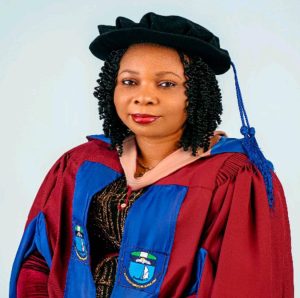It became a full-fledged department in 2015, with Prof. B.O. Green as the pioneer Head of Department.
Plant Science is required in diverse fields such as Agriculture, Natural product chemistry, Forestry, Horticulture, Pharmacology, Pharmacognosy, Ecotourism and Wood technology. Biotechnology simplifies understanding of all areas of Plant Science at the molecular level.
Profile of the HOD
Dr Mercy Gospel Ajuru pursued her B.Sc. in Botany from University of Uyo, Uyo, Akwa Ibom State, Nigeria in 1999; MSc. and PhD. Plant Taxonomy and Biosystematics from the University of Port Harcourt, Rivers State, Nigeria in 2009 and 2014 respectively. She was employed in the Department of Plant Science and Biotechnology, Faculty of Science, Rivers State University, Port Harcourt, Rivers State, Nigeria since 2010, and is currently working as a Reader. She is a member of BOSON, OWSD, Science Alert, STAN, etc since 2010. She has published more than seventy (70) research papers in both local and international journals with high index factor and attended conferences and workshops. Her main research work focuses on Plant Taxonomy, Phytochemistry, Medicinal Plants, Ethnobotany, Plant Anatomy and Gross Morphology. She has put in 15 years of teaching and research experience. She is married with children.

